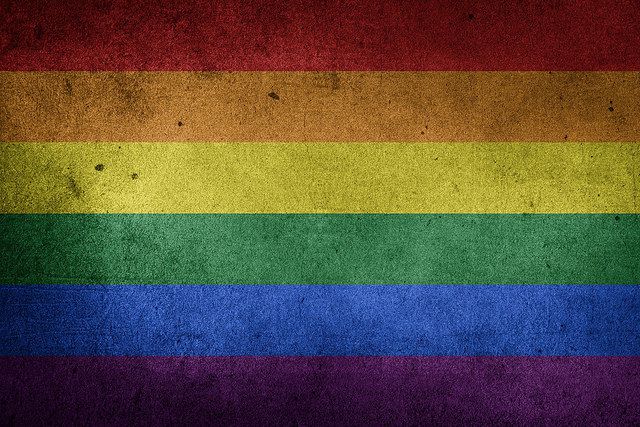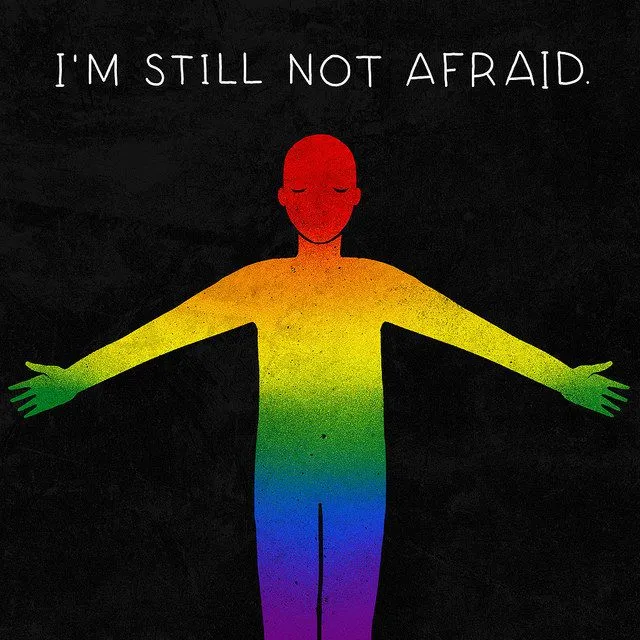“Coming out” is such an odd term for a difficult thing that many LGBTQ people go through.
There is often a lot of pressure to ‘come out’ to identify as ‘something’ and this can be unfair specifically for people who would feel negatively impacted by telling others about being LGBTQ.
Let’s go through some things that often people don’t talk about when it comes to coming out…
Coming out as gay is different for everyone
Coming out as gay or any other sexuality should never be pushed on anyone as we never know fully the situation the person is going through or how the people around them will react.
We all come from different backgrounds, cultures, upbringings and beliefs and with that comes differing perceptions of sexuality. Just because we may think coming out might be fine does not mean that it will be for everyone else.
The coming out result can be heavily based on the reaction of the person hearing the news and the level of homophobia present for them. If someone is repulsed by people being gay, clearly the interaction towards the gay person could be harmful.
Conversely, if someone is affirming of someone being gay, a positive reaction will occur. Repulsion, as a reaction, is still present in the community, which is why we should never push anyone towards coming out.
You don’t have to come out if you’re not ready
Being ready to come out can take time, sometimes, because of unanswered questions still lurking.
It might be because you haven’t had any feelings towards the same sex but you also haven’t had feelings towards people of another sex either. And that can be confusing.
These feelings, or the absence of them, are okay. What might be best is not labelling yourself as something quickly and instead taking time to get some answers before identifying yourself a certain way. This is particularly the case for young people having odd feelings.
Some people like having a label for how they are feeling. However, others prefer to be open to experiences first and take their time. There is no right or wrong answer here. It comes down to an individual’s choice.
Telling people about your sexuality doesn’t mean you have to change yourself
There are stereotypes about lots of different groups in the community, particularly minority groups. For gay people we are conceived as ‘camp’, ‘promiscuous’ and ‘feminine’ but coming out as gay does not mean we then have to live up to this view. You can still be you. Nothing needs to change.
The beauty of the gay community is that it is so diverse and your sexuality should dictate the rest of your identity. Being gay is only one part of you and how you express this is totally up to you.
Having a sexual experience with someone of the same sex doesn’t mean you should come out as gay
There is a reason for the term ‘men who have sex with men’. This is because sexuality can be fluid and also it’s okay to experiment with what feels good to you. Your sexuality does not have to be set in concrete and yes there are examples of people who have been in long-term heterosexual relationships and then moved into a same-sex relationship.
There are no set rules, so don’t feel that there is something wrong with you if you have experimented.
Don’t come out based on feeling pressure from others
Find your allies. It is best to find a friend or loved one you feel comfortable with to tell first. This person can be your go-to person when you start to tell others and they can be someone in your corner, right from the start.
It’s okay to just be attracted to whoever you’re attracted to rather than label it.
It’s also okay to say, “I think I might like guys” or “I think I might like all genders”.
This again is not about feeling confined or forced to choose a label for yourself at the time.
Sometimes people need time to process it. This is okay and it is probably the person’s issues that they need to think through, and not about you.
If there is a bad reaction, you can direct the person to organisations like PFLAG or Qlife where they can talk it through separately to you.
You aren’t alone in this.
There are plenty of both positive and negative coming out stories. Take the time to listen to these and understand how others have dealt with it. Knowledge is power, and it’s better to feel like others understand your experience.
Get some professional help if you believe that coming out is a complete ‘no go’. Rather than being about moving you more towards coming out – it is about supporting you with this significant stressor.
All of the above are fine. And this may prompt some questions from the other person. You don’t have to have all the answers if they do ask things.
Some questions some people may ask are:
- How long have you known?
- I thought you were dating ..… What happened there?
- Are you a top or bottom?
Again, you don’t have to know any answers, and you also don’t have to share anything more if you don’t feel comfortable.
The three stages of sexual orientation identity formation
- Stage 1: Discovery – this is where you start to question if you might be lesbian, gay, bisexual or transgender because of feelings you are having.
- Stage 2: Acceptance – this is when you start to accept that you are lesbian, gay, bisexual or transgender. Telling the first person is a sign of acceptance.
- Stage 3: Integration – this is when you begin to get comfortable expressing your lesbian, gay, bisexual or transgender identity and living your life accordingly. Getting into a same-sex relationship is a sign of integration.
There is plenty of support out there for you to access. We have also prepared a series of articles about LGBTQ support if you want to check it out.
If coming out is an issue for you and you would like to reach out and talk this through, give us a call or make a time today.
Find Out More
Here are some more articles about support for the queer community that you might find helpful.
Listen to our podcast with Safe Place Therapy queer counsellors, here, with Sophie and Stuart.
or watch on YouTube, here:



